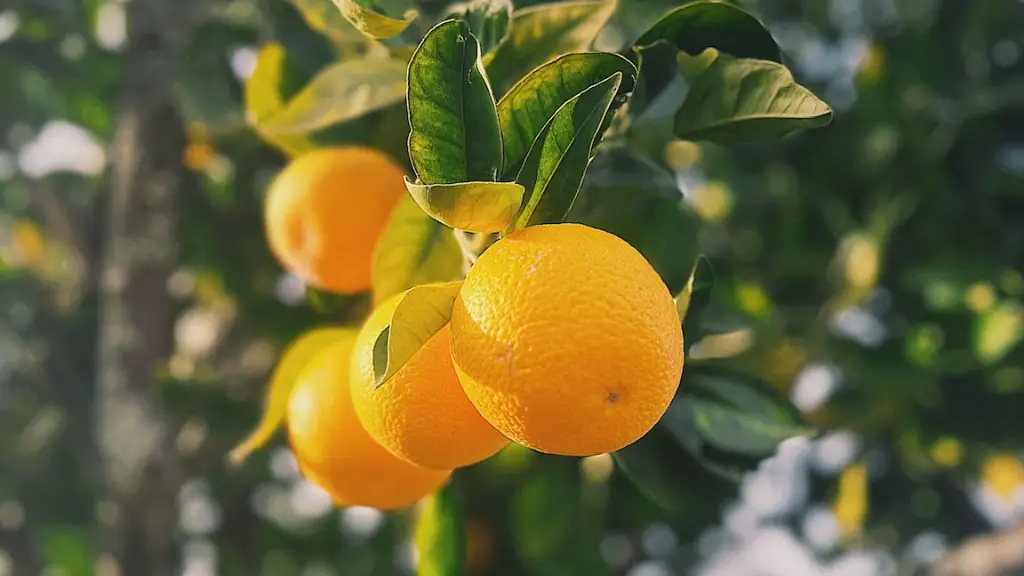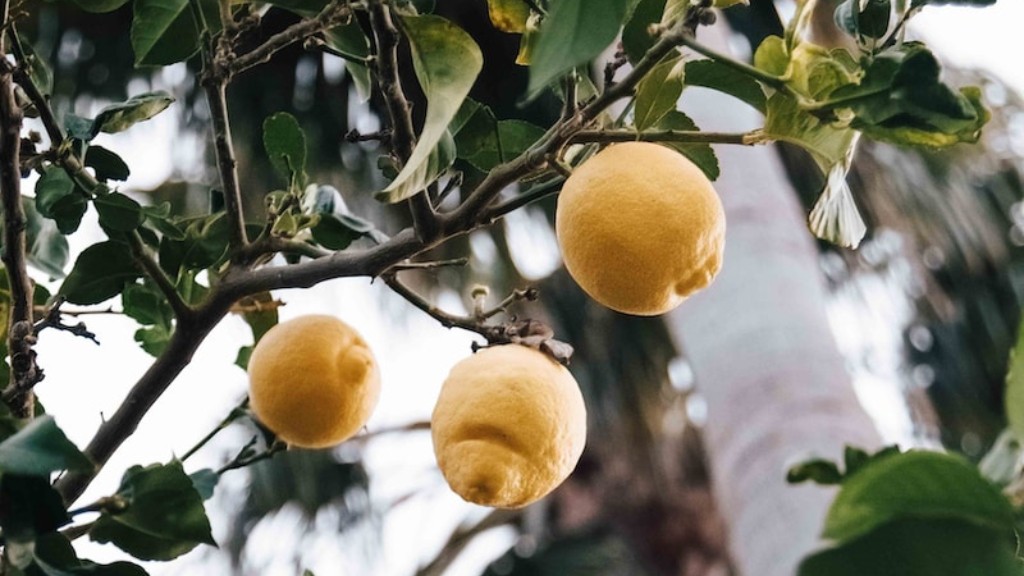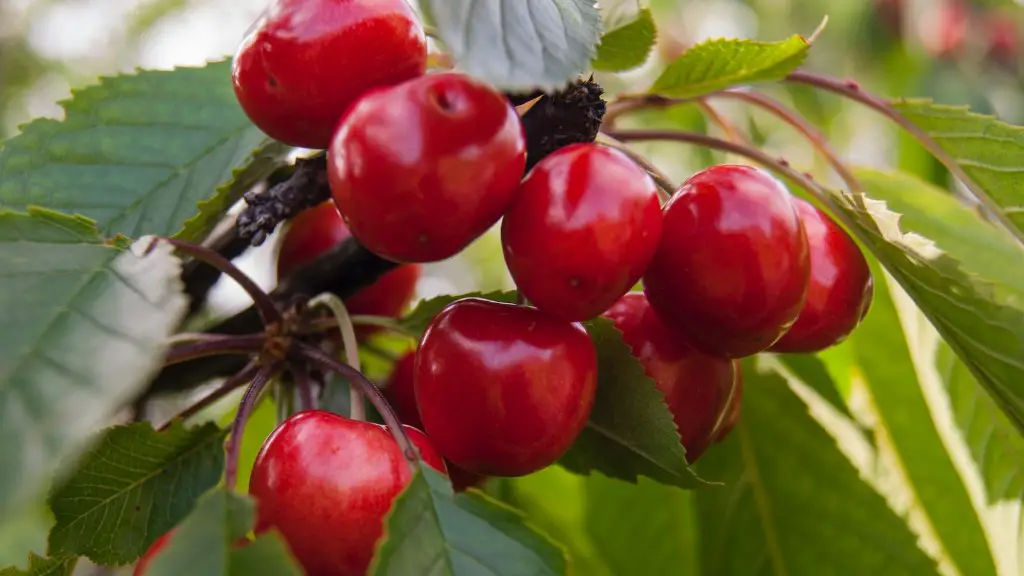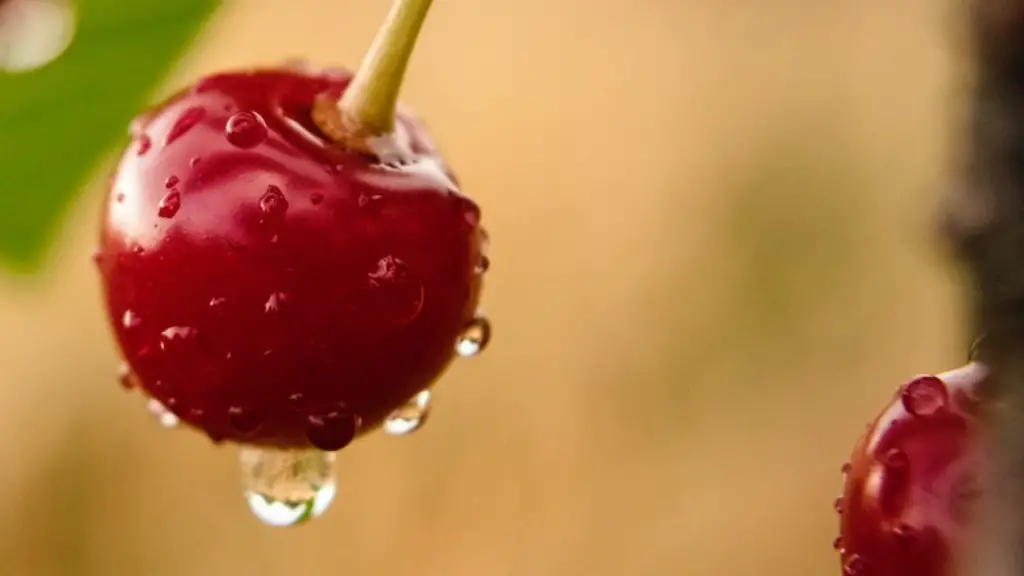When caring for a lemon tree, it is important to select the right fertilizer. The type of fertilizer you choose depends on the soil type, the amount of water and sun received, the overall condition of the tree, and the quantity of harvest. Thus, selecting the most appropriate fertilizer for your lemon tree is essential for promoting healthy growth and maximizing harvest.
The ideal fertilizer for a lemon tree should provide adequate levels of nitrogen, phosphorus, and potassium. Nitrogen helps encourage leaf growth and enlargement, phosphorus aids in flowering and fruiting, and potassium improves the overall health of the tree and boosts tolerance to pest and disease pressures. Furthermore, it is important to select a fertilizer with a balanced ratio of the three components – usually, indicated as a number such as 8-3-9.
It’s important to read the label carefully before purchasing as most commercial fertilizers come with “quick-release” or “slow-release” versions. Quick-release fertilizers provide an immediate burst of nutrients to the tree, but need to be applied more frequently throughout the growing season to maintain the nutrient levels. Slow-release fertilizers provide a steady supply of nutrients to the tree over a longer period, but care must be taken to select a fertilizer with the right balance of essential elements.
The amount of fertilizer used will depend on the size of your tree and the overall quality of the soil. Generally, one tablespoon of an 8-3-9 fertilizer applied per every four square feet of area should be sufficient for a lemon tree. Furthermore, the fertilizer should be spread evenly around the drip-line of the tree and lightly worked into the soil. It is recommended to use a liquid or granular fertilizer a couple of times each year and leach the tree with water during the rainy season to prevent any build-up of salts.
Finally, it is important to monitor the health of the lemon tree closely. If the tree appears to be in a poor state or under heavy stress, then applying a balanced fertilizer may help. When applying fertilizers, always wear gloves and safety goggles to prevent any irritations of the skin or eyes. For best results, it’s wise to consult an experienced arborist or horticulturalist.
Water Requirements
It’s important to consider the water requirements of your lemon tree when selecting the appropriate fertilizer. The rate of water uptake depends on the soil content and the surrounding environment. Lemon trees grown in soils with lower water-holding properties may need to be watered more frequently. Whereas trees grown in soils with high water-holding properties may require less frequent watering.
Generally, lemon trees need to be watered one to two times per week throughout the growing season and require more frequent watering during the flowering season. During dry spells, the water needs to be increased accordingly. Additionally, if your area is getting plenty of rainfall, it’s a good idea to skip fertilization during the rainy season.
It’s also important to determine the soil type before selecting a fertilizer. If you have sandy soil, then it is best to select a fertilizer with a slow-release formula. This ensures that the fertilizer can slowly release nutrients into the soil, allowing the tree to absorb them over time. Clay soil requires a more water-soluble fertilizer, as it tends to retain nutrients in the soil.
Finally, it is important to understand the local climate when selecting the right fertilizer for your lemon tree. If the climate is dry and hot, then it is best to apply fertilizers with higher potassium levels. This helps the tree to better withstand the hot temperatures, reducing the amount of water needed. Whereas in a wetter and cooler climate, the prioritization of nitrogen and phosphorus are more important for promoting healthy growth.
Compost Usage
Using a good-quality compost every year on your lemon tree can be a great way to ensure the continual availability of essential nutrients. Compost is a natural fertilizer created by decomposed plant matter, making it rich in essential elements to maintain healthy soil. Additionally, compost also helps improve nutrient retention, soil structure and oxygen uptake.
The best type of compost to use is a compost-rich humus. Humus is the decomposed matter found in the soil that is created when organic material breaks down. This is beneficial as it creates a nutrient-rich layer that helps to improve soil fertility and prevent moisture loss. It is also important to mix the compost evenly around the drip line of the tree for the best results.
Using organic compost is a great way to keep your lemon tree healthy, provided that the correct quantity and quality of compost is used. Generally, one to two inches of heavy, organic compost should be applied on the soil surface around the tree. Furthermore, if the soil is heavily compacted, it’s advisable to use a tiller or spade to loosen the soil before applying compost.
Regularly testing the soil pH and nutrient levels of your tree is also important. This will help you to determine if your soil needs a boost of additional compost or fertilizer. Furthermore, it’s best to avoid using compost that has been treated with artificial chemicals or herbicides to ensure that you don’t damage your tree.
Foliar Feeds
Foliar-feeding is another great way to apply essential nutrients to lemon trees. This technique involves providing essential micronutrients to trees by spraying diluted fertilizer directly onto the leaves. Foliar-feeding helps to ensure that the tree receives essential nutrients quickly, without the need for soil-application.
When foliar-feeding trees, it is important to use the correct dilution rate. Generally, a dilution rate of one part fertilizer to ten parts water is recommended. Furthermore, it is important to spray the solution onto both sides of the leaves in a slow and even manner. This provides the best absorption rate of nutrients through the leaves, ensuring that the tree gets the most out of the application.
Foliar-feeding is most beneficial during times of stress. When the tree begins to flower, or the soil nutrients become depleted in the middle of the growing season, a foliar-feed may be applied to help boost the level of nutrients. Foliar-feeding should also be used when applying a balanced fertilizer is difficult, such as when the tree is growing in a pot.
Finally, it is important to read the fertilizer label carefully and select the right mixture for foliar-feeding. Certain fertilizer formulations may contain salts that can burn the leaves of the tree. Therefore, choosing a fertilizer from a trusted brand is recommended.
Humic and Fulvic Acids
Humic and fulvic acids are two naturally-occurring organic acids that can be used to supplement the health of lemon trees. These acids are derived from decayed plant matter and provide additional nutrients to the soil, improving the soil structure and aiding in plant growth.
Humic acid helps to break down nutrients in the soil, making them more easily absorbed by plants. This is a great way to promote healthy growth as it ensures the tree is receiving sufficient levels of vitamins and minerals. Additionally, humic acid helps to reduce pH levels in the soil and improves water retention.
Fulvic acid, on the other hand, aids in the transportation of nutrients around the plant, helping them to be absorbed by the roots and circulated to the leaves. In doing so, fulvic acid helps to increase the chlorophyll levels in the leaves, which is beneficial for photosynthesis, improving the overall health of the tree.
When selecting a humic or fulvic acid, it is important to select the right type for your tree. Generally, humic acid should not be applied when the soil pH levels are below 6.0 and fulvic acid should not be applied when the pH levels are above 7.0. If the pH levels are in between 6.0 and 7.0, a combination of both humic and fulvic acid may be used.
Furthermore, it’s important to read the label of the humic or fulvic acid product carefully before applying. Some products may contain additional fertilizers or herbicides that may prevent the intended effects.
Root System Enhancement
Using a root system enhancement can be beneficial when caring for a lemon tree. Root system enhancement products are specially designed to stimulate a tree’s root exposure, allowing the roots to take up more nutrients and water from the soil.
Root system enhancement products often contain a combination of essential minerals and beneficial microbes. These minerals help to increase the rate of root development as well as aid in nutrient and water uptake. Additionally, microbes help to break down the soil for better absorption of nutrients.
It is important to select a root system enhancer based on the size of your tree and its root system. The roots of larger trees need more nutrients and space to absorb them, whereas smaller trees require less. Thus, selecting a root system enhancer that provides the right amount of nutrients and microbes is vital.
Root system enhancers should be applied once or twice per year, depending on the size and health of the tree. Generally, one-third to one-half cup should be applied for every four square feet of soil, spread evenly around the drip-line. Additionally, it is important to water the tree after applying a root system enhancer as this helps the tree absorb the nutrients.
Finally, it is important to monitor the overall health of the lemon tree. If the tree appears to be in a weak or stressed state, then applying a root system enhancer may provide the necessary nutrients to help it recover.




